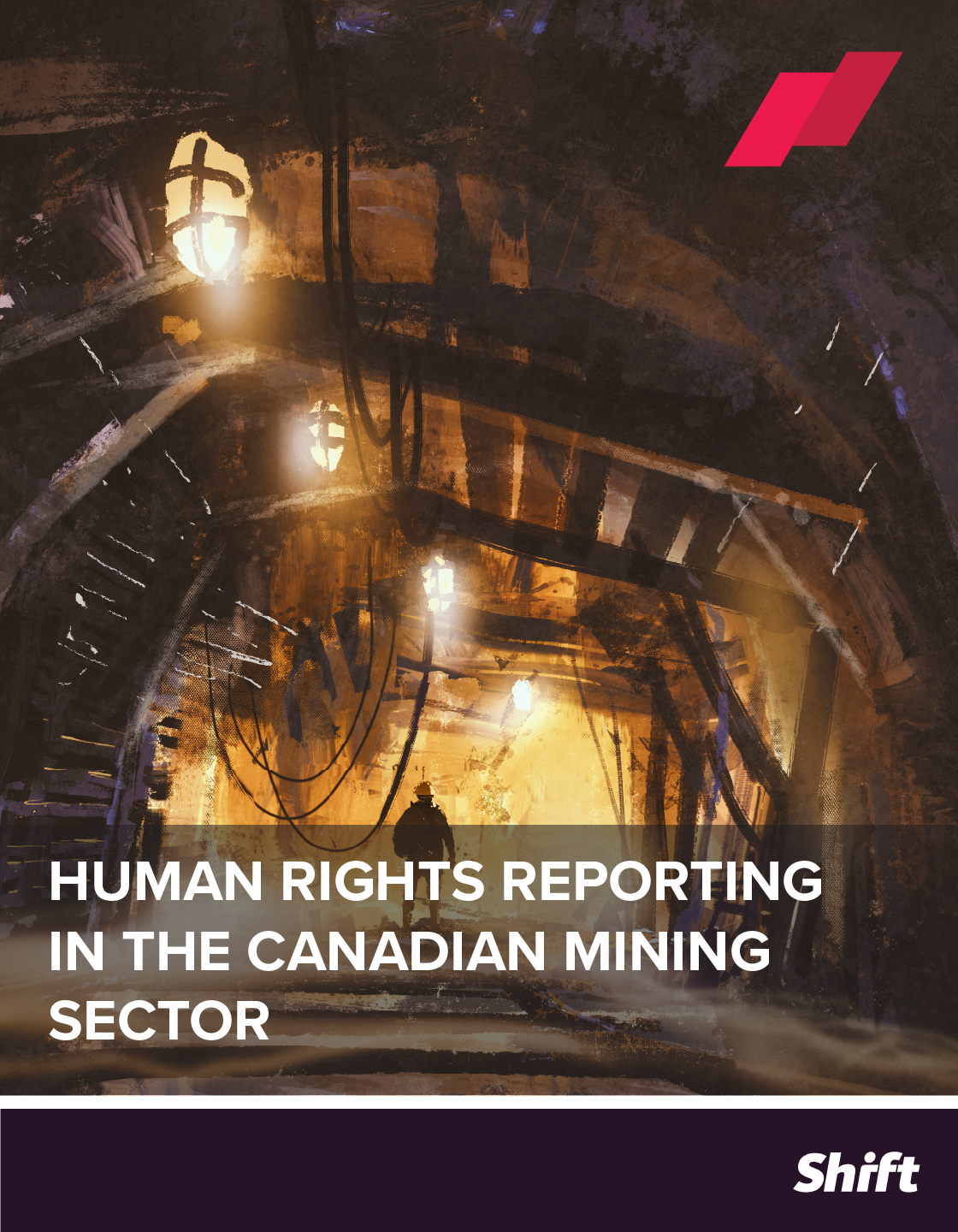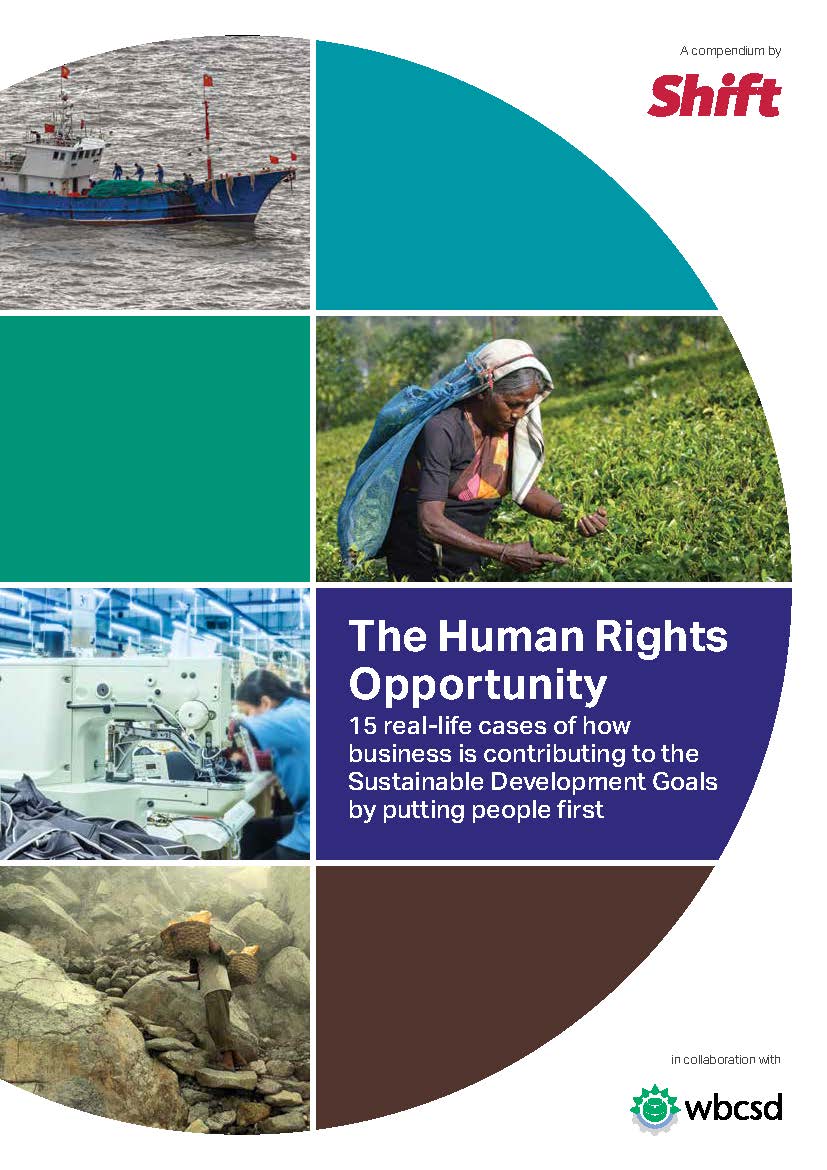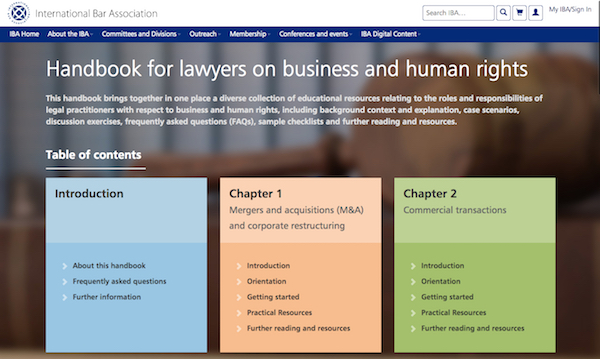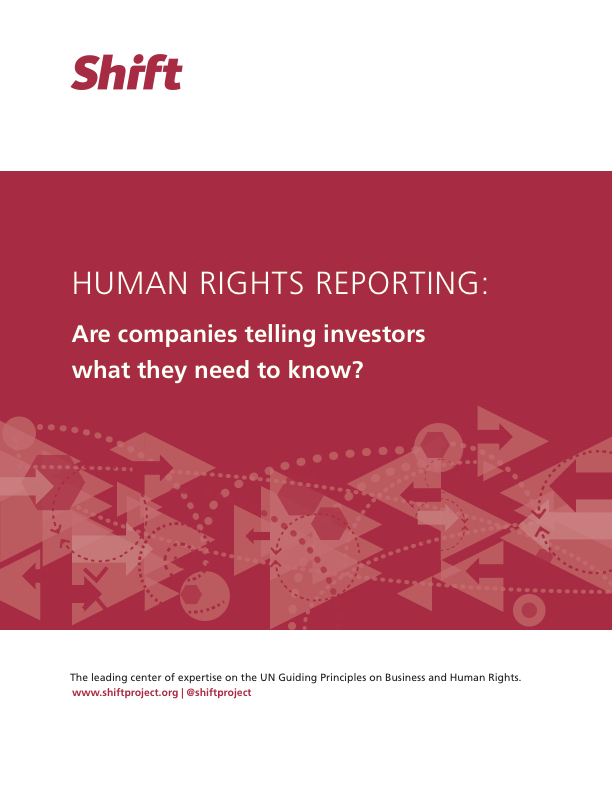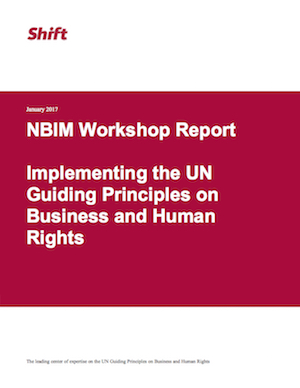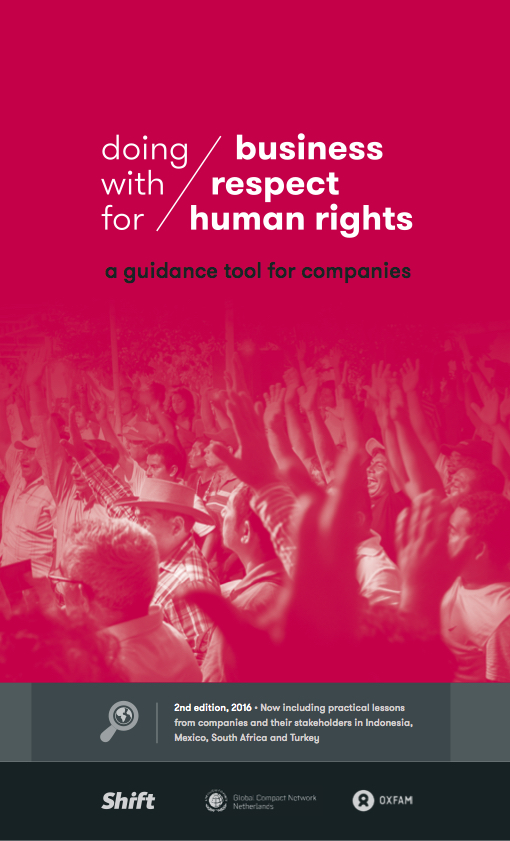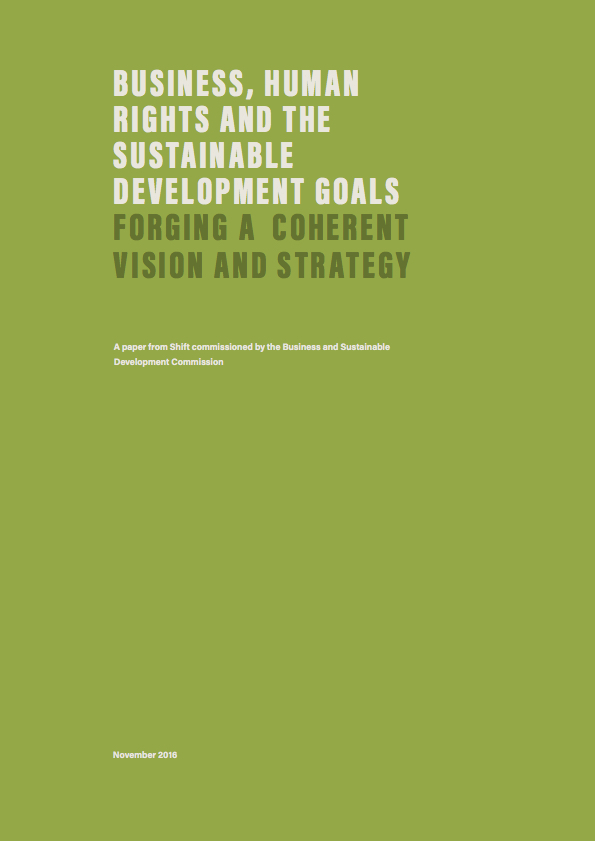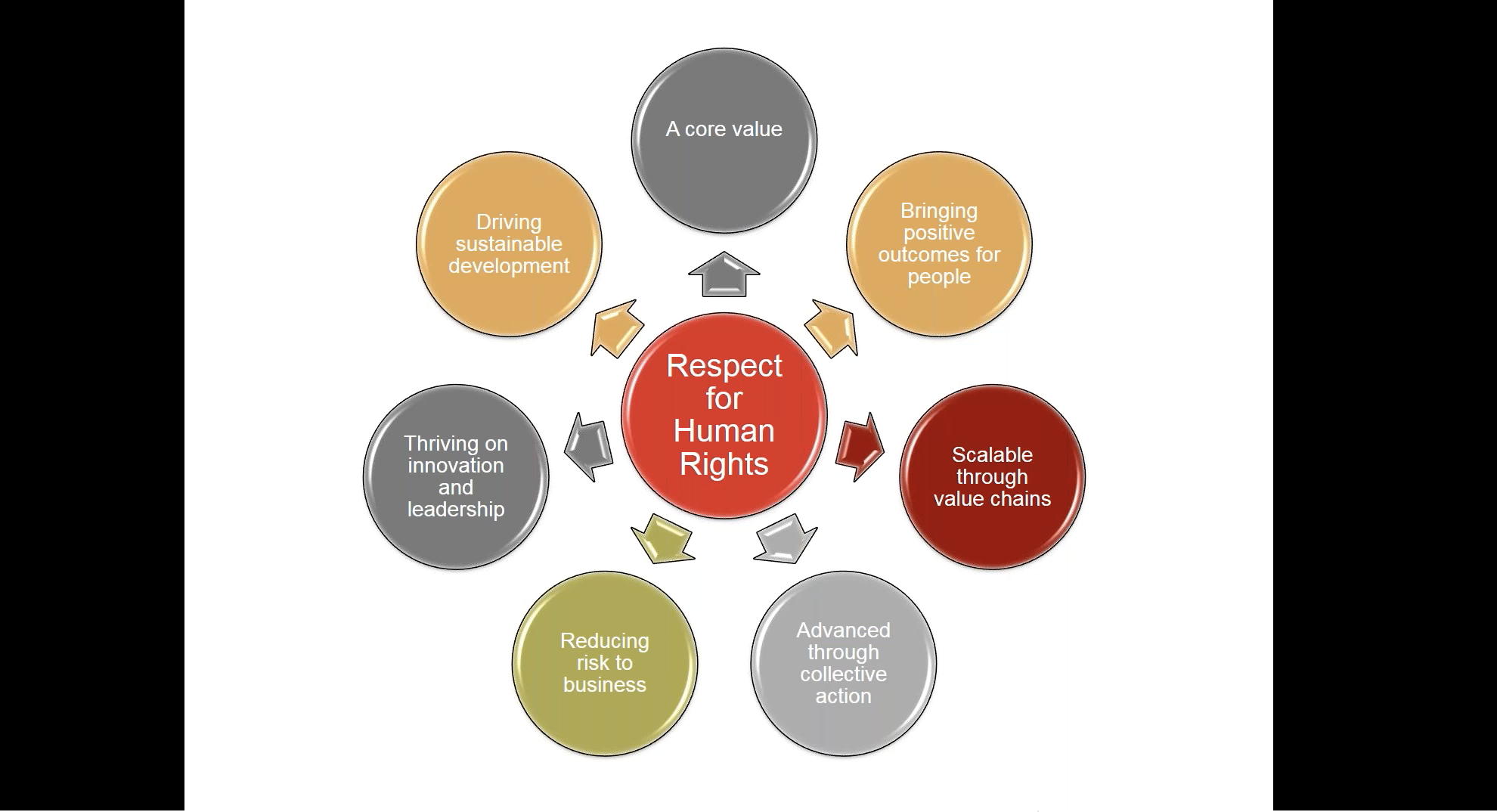Also see: Shift’s reporting program | UNGP Reporting Framework
Failures in governance and lack of appropriate focus still common amongst largest companies
Findings based on our new indicators of maturity for corporate reporting
A key area of focus for us at Shift is corporate human rights reporting. Through our work on the UNGP Reporting Framework and our reporting program, we’re seeing that a smart approach to reporting can be a tremendous driver of improved performance — ultimately leading to real, positive change for people.
As part of our work on this topic, we’ve developed a new methodology to assess the maturity of companies’ reporting on human rights. This methodology, based directly on the expectations set by the UN Guiding Principles and the UNGP Reporting Framework, establishes indicators of mature reporting, distinguishing laggards from leaders along a tiered maturity scale.
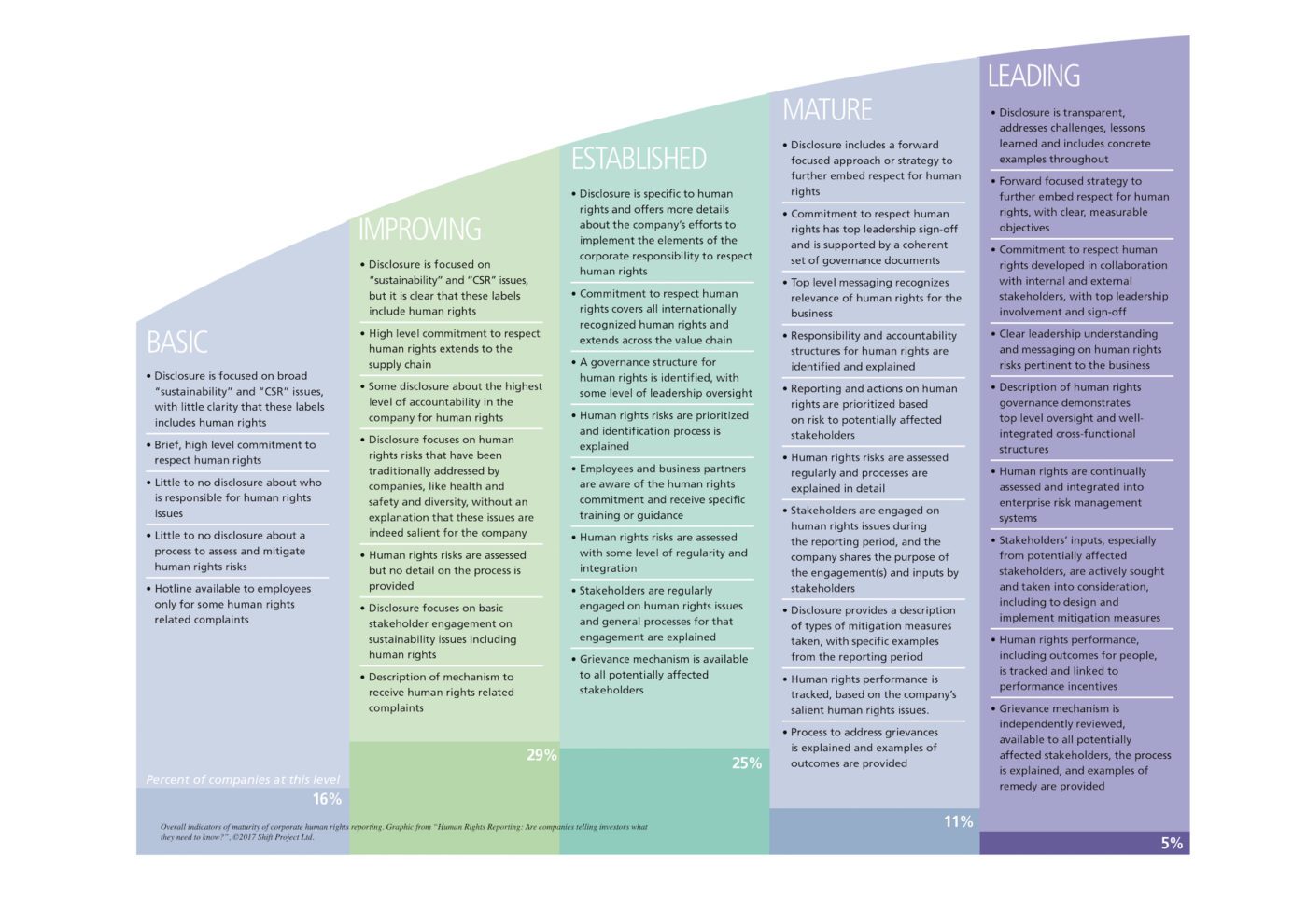
Indicators of overall maturity of corporate human rights reporting. Click on the image to see more detail, or see p.10 of the above PDF.
We’ve applied this methodology in the report available on this page, which is an assessment of the maturity of 74 of the world’s largest companies from seven sectors. While the report is primarily targeted at investors, its findings and the maturity indicators can bring value for a range of readers.
Key findings
Our key finding is about the most critical area for improvement: over half of companies provide no clarification about which human rights are most relevant to their operations and value chains. Instead, these companies just refer to certain human rights related issues without any apparent rationale.
This is concerning because it signals that far too many companies are not managing their most severe potential risks to people: neither a good sign for the people affected by the business, nor a signal that the company can create long-term value for investors, severe human rights risks increasingly constitute material business risks as well.
In addition to this top finding, we see a story emerging about various – and for some companies cumulative – failures in the governance of human rights risks, at least based on their disclosure:
- Lack of oversight: 45% of the companies reviewed do not clearly identify who is responsible and accountable for managing human rights risks.
- Lack of clarity about internal controls: approximately 90% of the companies do not have a coherent narrative about how risk or impact assessments inform mitigation actions taken, how decisions are made or if senior management is ever involved.
- Total silence on governance: 16% of the companies provide no information at all about governance of human rights, nor even about governance of broader issues such as “sustainability” or “corporate social responsibility.”
Finally, when we look to actual outcomes, fully 45 percent of companies provide no information whatsoever about how they track their performance on human rights – leaving readers in the dark about whether any of their efforts translate into positive outcomes for people.
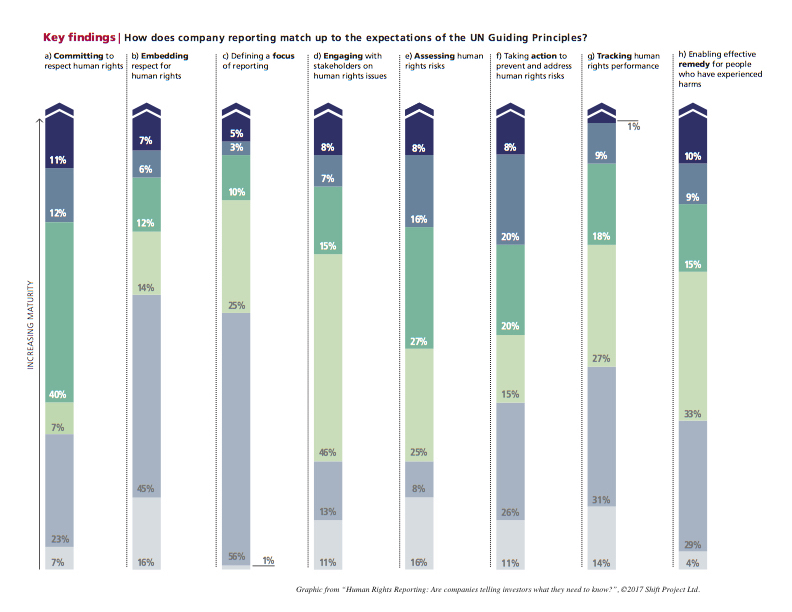
Companies’ maturity across the elements of the responsibility to respect human rights. Click on the image to see more detail, or see p.7 of the above PDF.
This study is not a benchmark, ranking or rating. We do not reveal individual companies’ maturity level, but rather focus on trends in corporate reporting: how many companies are least to most mature in the various elements of respecting human rights (according to their own disclosure). Of course we do assess the maturity of individual companies to compile our broader findings. But our purpose here is to drive improvements, not name and shame.
Recommendations for investors and other stakeholders
Based on the analysis conducted for this report, we can derive some overarching elements that can help or hurt the quality of companies’ reporting on human rights. The red flags adjacent to the Do’s and Don’ts are tips for investors about “red flags” to watch out for in corporate reporting. Click on the image to see more detail, or see p.38 of the above PDF.
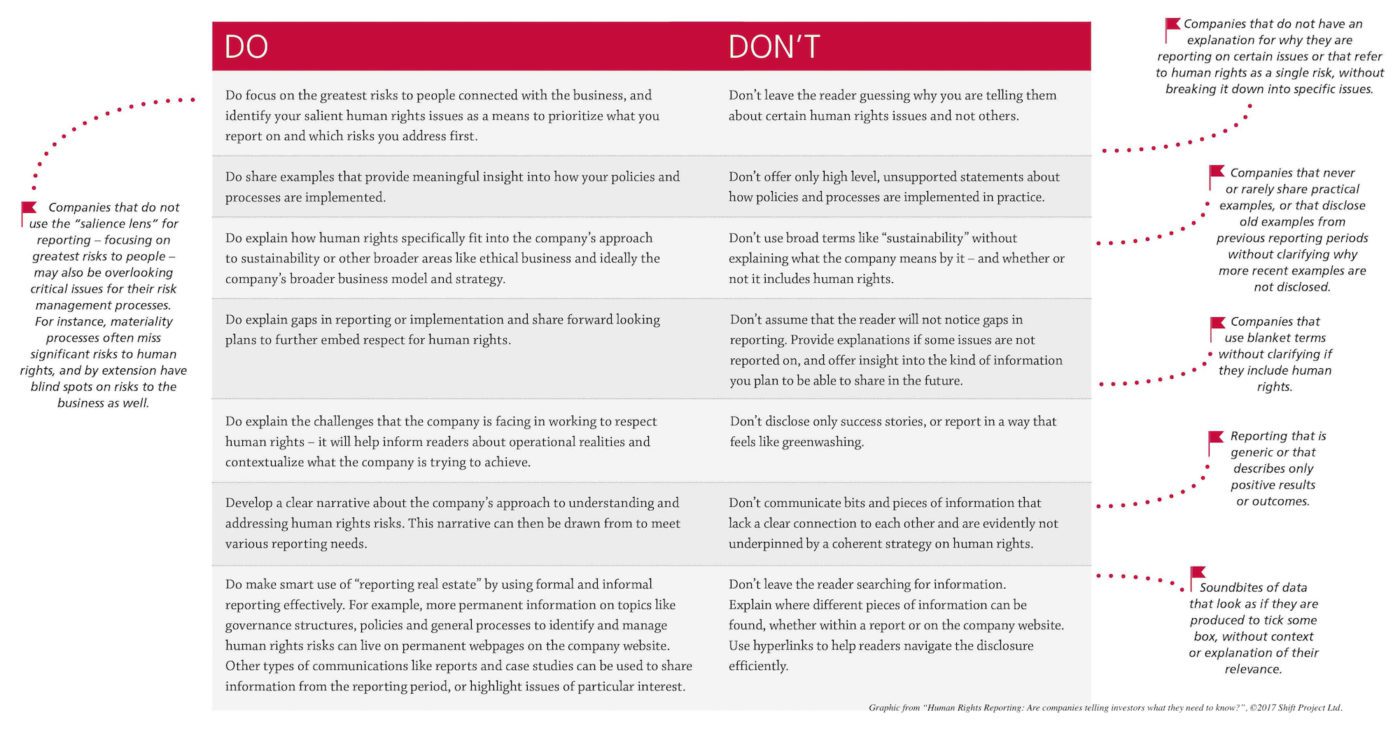
—
In addition to this study, our reporting team also writes a short blog-style analysis series, examining trends and sharing insights about the quality of corporate reporting on human rights. This report as well as that insights series are drawn from our UNGP Reporting Database, a public, independent database that shows companies’ human rights-related disclosure mapped to the expectations of the Guiding Principles. Our team of specially trained analysts manually review companies’ entire body of disclosure and offer companies an opportunity to discuss the review with us prior to publishing.
